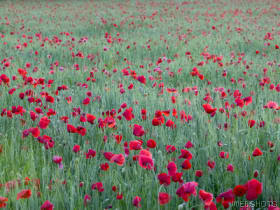(updated the morning after....) So are you following
Classical Star on BBC2?
This series, which brings the world of
The Apprentice to
a group of teenaged music students, is rather remarkable for how little serious coverage it's had in the national press. I guess nobody is taking it very seriously.
Cellist
Matthew Barley, who's head honcho, is more Sugar than Sir Alan, and, with plentiful charm, charisma and a good way with youngsters, is possibly the only person in the country who could have pulled this series off with reasonable success. The thing is, the voyeuristic, ooh-aren't-they-nasty mentality of the
Big Brother/
Fame Academy/etcetc format is not exactly designed for hardworking youngsters who just want to get on with their practising. Also, the format itself is distinctly tired, music or none.
I'm fence-sitting. I can't decide whether I think it's A Good Thing because it gets music-making onto primetime TV for several weeks running (grand finale next week) or A Bad Thing because when it all goes belly-up afterwards it's the kids who will suffer. So here are a few reactions.
Hilary Davan Wetton in The Guardian:
A society that revels in others' public distress or humiliation, filmed in intrusive close-up, is a pretty sick society. Classical Star harks back to the worst excesses of the Roman arena. The children are exhibits in a human circus. The judges use the thumbs up/thumbs down technique of the Roman emperor; they offer us pretension, patronage and a deep sense of self-importance. We are all being coarsened by this continual diet of exploitation.
Anna Picard in The Independent on Sunday:
...the most enjoyable aspect of Classical Star has been seeing how fantastically resistant classical music is to being sexed up. What dreamy Emily, streetwise Tyler and the others have in common is their absolute respect for the craft they are learning. By the time most Big Brother contestants drag themselves out of bed for a snog or hair of the dog, the Classical Star competitors have been practising for hours. Indeed, the worst incidence of naughtiness to be seen on the series so far was when one violinist snaffled an extra 20 minutes of rehearsal time.
Will the series encourage more children to take up an instrument? Possibly, for it does at least show that kids who like Lutoslawski are not, on the whole, the freaks and geeks of popular imagination. Will it create a real Classical Star? No.
I think I'm inclining around 75% to the second. Any thoughts, people? Send 'em in!
Oops. Left out
Lebrecht. Here you go:
Since the aim is to find a classical star, not a classical artist, the series is peripheral to anyone with a serious interest in music. It is mildly entertaining in the way the late-night weather forecast can be when seen through a bad head cold. I shall probably watch it again, with Lemsip. What it is doing on the BBC, I have no idea.
And if we do NL, we must also do
Pliable, who's predictably with HDW on this, and adds in his Comments: "Jessica, did anyone ever tell you that public executions drew huge audiences during the French Revolution?" Pliable, did you read the other half of my point?
Not wanting to seem holier-than-thou, I'm surprised that nobody has discussed what's been done to the actual music. That is probably an indication of the degree to which it's been sidelined. We never hear any of the kids perform a piece right through. We can get a mild idea of how they might play, but we can't possibly judge properly on a few seconds at a time, and the way the music has been cut makes no sense. Clearly nobody at the BBC thinks the audience could possibly cope with hearing a whole movement of Mendelssohn - let alone knowing how f***ing difficult the D minor trio is to play.
